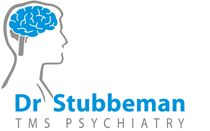
Category Archives: Latest News


AF Researchers Studying The Brain
The 711th Human Performance Wing recently signed a Cooperative Research and Development Agreement with Rio Grande Neurosciences of Albuquerque, N.M., to expand its work in the field of transcranial direct current stimulation to include new stimulation methods. Specifically, the project will expand the 711HPW’s work by focusing on the development and evaluation of pulsed electromagnetic field stimulation, new tDCS paradigms, and transcranial alternating current stimulation.
Transcranial direct current stimulation shows promise for depression therapy
Small amounts of electricity similar to the output of a common 9-volt battery could improve life for people living with major depression, the most common mood disorder. A new study at the University of Kansas will investigate the potential of transcranial direct current stimulation, or tDCS, whereby a safe, low current of electricity is applied to the brain by placing electrodes on a person's scalp. The painless technique may be a useful as a therapy for depression, especially in conjunction with antidepressant medications.
Self-Control Isn’t Just Controlling Impulses, but Also Changing Perspective
This theory was tested using transcranial magnetic stimulation to disrupt the function of the pTPJ in two separate studies on volunteer subjects from the University of Zurich. The disruption of this subregion of the brain would ultimately indicate if the subjects still held their capacity of self-control or if they became selfish and impulsive. The first study investigated 43 subjects who performed two tasks.
Magnets Cured My Depression
TMS — which was approved by the Food and Drug Administration in 2008 and has been gaining popularity since — works by stimulating the part of your brain that controls joy. “When that’s inactive, it causes depression,” Dr. Tarique Perera...
Do You Suffer From Ringing Or Buzzing In The Ear?
When there is ringing or buzzing in the ears, individuals are said to suffer from tinnitus. Tinnitus is caused by a number of factors. However, there are treatment options available to treat tinnitus.
New symptom-free treatment helps depression, reduce military suicides
A new therapy is changing the way soldiers are treated for depression, PTSD and possibly even suicide. Fort Gordon in Augusta, Georgia is one of only three places in the Army that does it. It's called TMS, or Transcranial Magnetic Stimulation.
Family 411: Unique treatment for when medications for depression don’t work
Depression is more than a rough patch, it's a serious mental health condition. There are signs families should look for and a unique treatment when medications just don't work.
Comparison between neurostimulation techniques rapid transcranial magnetic stimulation vs electroconvulsive therapy for the treatment of resistant depression: patient preference and cost-effectiveness
Aim: The most effective treatment alternatives for TRD are hospitalization, electroconvulsive therapy (ECT), and transcranial magnetic stimulation (TMS). Here we compared the clinical effectiveness of ECT and TMS, including success rates...
